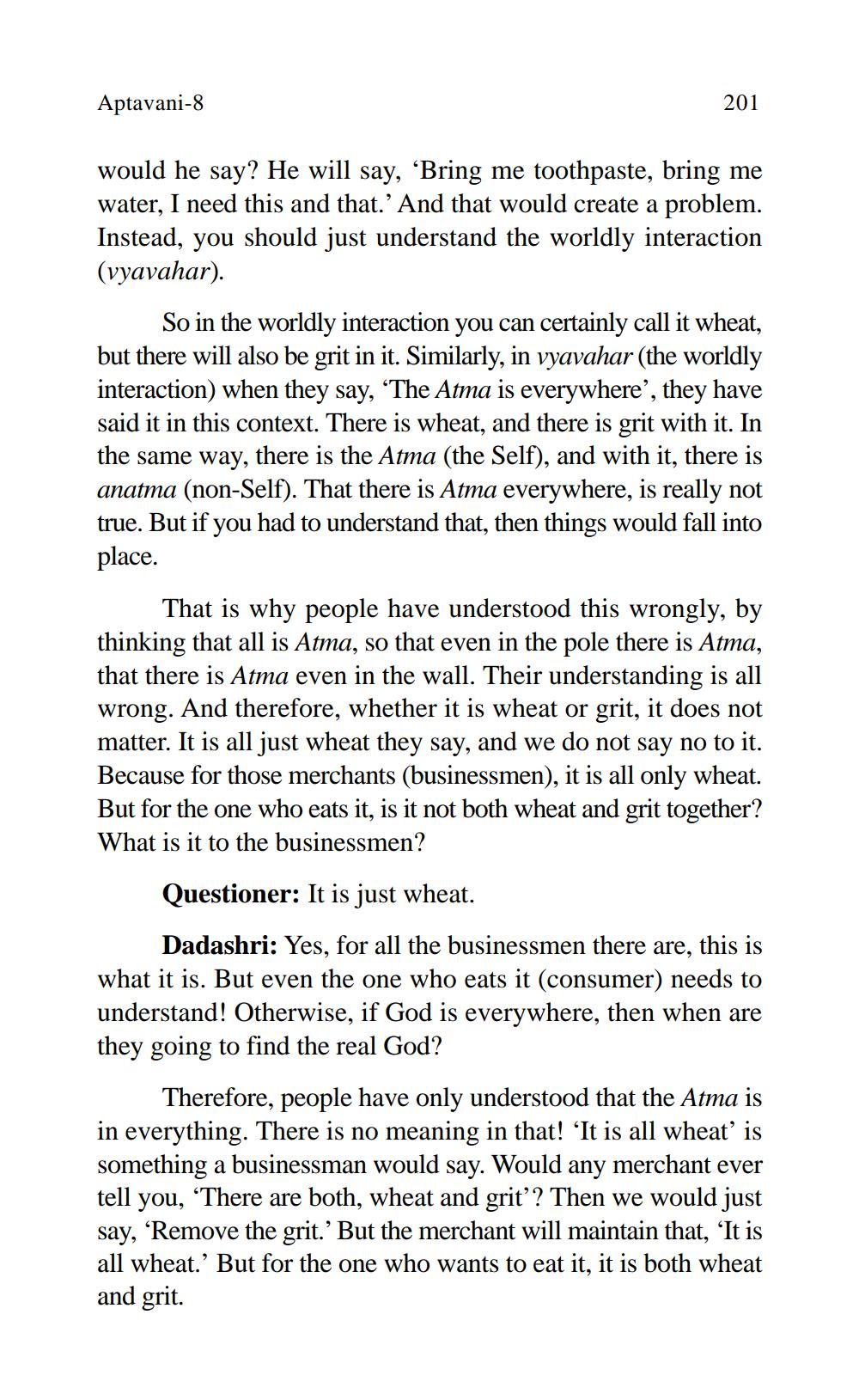________________
Aptavani-8
201
would he say? He will say, 'Bring me toothpaste, bring me water, I need this and that.' And that would create a problem. Instead, you should just understand the worldly interaction (vyavahar).
So in the worldly interaction you can certainly call it wheat, but there will also be grit in it. Similarly, in vyavahar (the worldly interaction) when they say, 'The Atma is everywhere', they have said it in this context. There is wheat, and there is grit with it. In the same way, there is the Atma (the Self), and with it, there is anatma (non-Self). That there is Atma everywhere, is really not true. But if you had to understand that, then things would fall into place.
That is why people have understood this wrongly, by thinking that all is Atma, so that even in the pole there is Atma, that there is Atma even in the wall. Their understanding is all wrong. And therefore, whether it is wheat or grit, it does not matter. It is all just wheat they say, and we do not say no to it. Because for those merchants (businessmen), it is all only wheat. But for the one who eats it, is it not both wheat and grit together? What is it to the businessmen?
Questioner: It is just wheat.
Dadashri: Yes, for all the businessmen there are, this is what it is. But even the one who eats it (consumer) needs to understand! Otherwise, if God is everywhere, then when are they going to find the real God?
Therefore, people have only understood that the Atma is in everything. There is no meaning in that! 'It is all wheat is something a businessman would say. Would any merchant ever tell you, ‘There are both, wheat and grit'? Then we would just say, 'Remove the grit.' But the merchant will maintain that, 'It is all wheat.' But for the one who wants to eat it, it is both wheat and grit.




